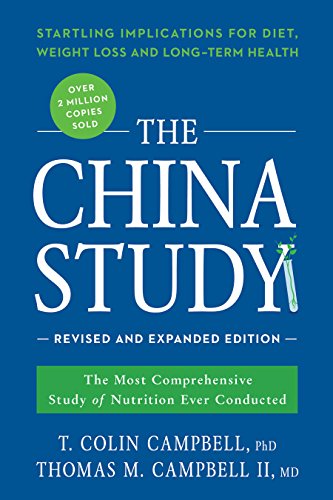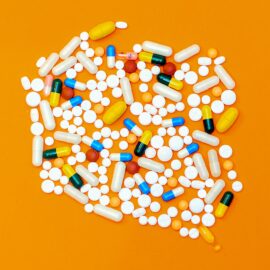

This article is an excerpt from the Shortform summary of "The China Study" by Colin Campbell. Shortform has the world's best summaries of books you should be reading.
Like this article? Sign up for a free trial here .
You may have heard that one of the effects of high cholesterol is heart disease. Is that true? Are there other risks of high cholesterol? What else can high cholesterol cause?
We’ll cover how high cholesterol is tied to heart disease and what other diseases might be caused by high cholesterol.
What Can High Cholesterol Cause?
Researchers found that a subject’s blood cholesterol level was one of the strongest predictors of developing “rich” diseases, diseases of affluence mostly seen in the West. The lower your cholesterol, the lower your risk of at least 11 diseases:
- Heart disease
- At least ten cancers, including lung, liver, colon, breast, and brain cancers
The effects of high cholesterol are wide-ranging, but its ties to heart disease are currently the most established.
Risks of High Cholesterol: Heart Disease
Research
One study conducted over half a century ago demonstrates the impact of diet on heart disease and addresses the question, Does high cholesterol cause heart disease?
Research Study #2: 1946 Los Angeles Study
We can look at the effects of high cholesterol on heart diesease by comparing it with other factors that doctors attribute heart disease to.
In 1946, it was already clear that diet had a major impact on heart disease. One doctor conducted a study in which he asked 50 of his patients (Group A), all heart attack survivors, to continue eating as they normally would, and another 50 patients (Group B), also heart attack survivors, to eat a low-fat, low-cholesterol diet.
Group B was allowed only 4 ounces of meat a day. They weren’t allowed to eat pork, animal fats, cream, butter, egg yolks, whole milk, or anything made with these ingredients.
Results:
8 years out:
- Only 24% of Group A patients, those eating the standard American diet, were alive.
- 56% of Group B patients, those eating a low-fat, low-cholesterol diet, were alive.
12 years out:
- 0% of Group A patients were still alive.
- 38% of Group B patients were still alive.
Group B’s low-fat, low-cholesterol diet severely limited their intake of animal foods, and dramatically increased their potential lifespans.
Animal foods have been shown to increase blood cholesterol levels. This study indicates that one of the effects of high cholesterol is heart disease.
Dietary Factors That Increase Cholesterol
Early research studies like the one above focused on the roles of fat and cholesterol in heart disease. No one considered that the amount of fat and cholesterol you consumed might merely be indicative of how much animal-based food you were eating.
More recent studies have indicated that, in addition to fat and cholesterol consumption, eating animal protein increases your risk of heart disease.
In one study, researchers fed casein (a milk protein) to rats, rabbits, and pigs. They found that casein alone, independent of fat and dietary cholesterol, raised the animals’ blood cholesterol levels.
Conversely, feeding animals soy protein dramatically decreased their blood cholesterol levels, and human studies have indicated that eating plant protein has even more power to decrease cholesterol levels than decreasing fat or dietary cholesterol intake.
Effects of High Cholesterol: Heart Attacks
Are heart attacks one of the risks of high cholesterol? Yes and no. To understand how cholesterol affects heart attack risk, we need to understand the role of plaque in the process.
The Role of Plaque in Heart Disease
Plaque is made up of cholesterol, proteins, and immune system cells, among other components. Together, they create a greasy layer lining the walls of the coronary arteries.
You can think of the coronary arteries like garden hoses. Plaque accumulating in an artery is like putting an increasingly acute kink in the hose. Blood flow turns to a trickle. Plaque buildup leads to angina, or chest pain.
Heart Attacks
Counterintuitively, having more plaque buildup doesn’t necessarily mean you have a higher heart attack risk. Heart attacks are more likely to happen when plaque blocks less than 50% of the artery.
This is because thinner layers of plaque have weaker caps. Caps are layers of cells that can separate from the core of the plaque.
Blood surging through the arteries can cause a cap to rupture. When this happens, some of the contents of the plaque mix with the blood, and a clot forms at the rupture site. The clot can get so big that it blocks the whole artery.
Consequently, the heart doesn’t get enough blood (or the oxygen it carries), and cells in the heart start to die. This is a heart attack. One-third of heart attacks are fatal.
One of the consequences of high cholesterol could be a heart attack, but more cholesterol and plaque doesn’t necessarily mean a higher risk.
The effects of high cholesterol go far beyond heart disease. Although high cholesterol is rarely the single contributing factor to any disease, and the research on what high cholesterol can cause isn’t definitive, the consequences of high cholesterol should be taken seriously.
———End of Preview———

Like what you just read? Read the rest of the world's best summary of "The China Study" at Shortform . Learn the book's critical concepts in 20 minutes or less .
Here's what you'll find in our full The China Study summary :
- Why animal proteins (meat, milk) might cause cancer, diabetes, and other diseases
- Why the medical institution is structured to hide the truth about disease and food
- The precise diet you'll need to eat to live longer and feel happier






